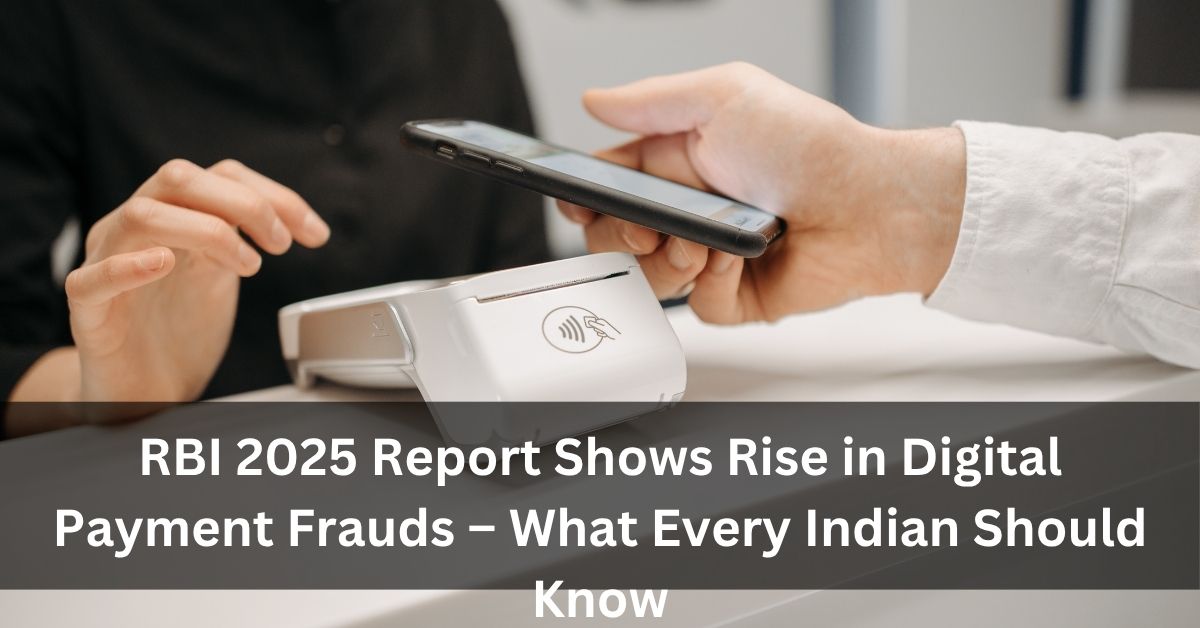RBI 2025 Report Shows Rise in Digital Payment Frauds – What Every Indian Should Know
Digital wallets have made our lives easier. We can send and receive money in seconds using UPI apps, Paytm, PhonePe, Google Pay, and other platforms. But while the number of digital transactions has increased, so have the frauds related to them.
The Reserve Bank of India (RBI) has released its 2025 report. It says that fraud cases in online payments and banking have gone up a lot in the last year. At Portal Chakshu, we are explaining what this report means in Bank Accountple words, so you stay alert and don’t fall into traps.
What the RBI 2025 Report Shows?
In 2024-25, India saw a sharp rise in payment-related fraud. Whether it was banking apps or payment wallets, many users became victims of online cheating.
Here are some of the main figures from the report:
- Total fraud cases reported: 23,953
- Digital payment frauds alone: 13,516
- Money involved in all frauds: ₹36,014 crore
- Money lost in the previous year: ₹12,230 crore
This means the amount lost due to fraud has almost tripled in one year.
Where These Frauds Are Happening
The RBI report says private banks reported the highest number of frauds — more than 59% of all cases. But public sector banks lost more money overall — nearly ₹25,667 crore.
Payment wallets are also being targeted. Fraudsters are using new tricks to cheat people who use digital wallets for daily use.
At Portal Chakshu, we have covered many such stories and alerts, especially those that affect everyday users.
How These Frauds Are Taking Place?
Let’s understand the most common ways in which people are being tricked.
1. Fake Customer Care Numbers
People often search for customer care numbers online. Scammers list fake numbers on websites. When someone calls, the scammer asks for card details, UPI PIN, or OTP. Once given, the money is gone.
2. KYC Update Scams
Scammers send messages asking users to update their wallet KYC. They say your wallet will stop working if you don’t update it. The link in the message is fake, and once clicked, the scammer gets access to your wallet.
3. QR Code Scams
You may get a message asking you to scan a QR code to receive money. But these codes are designed to withdraw money from your account, not add it.
4. Fake Cashback or Offers
Fake offers through messages or apps say you have won a cashback. They ask you to click a link or fill out a form. The data you enter is then used for fraud.
5. Phishing Websites
Some websites look just like your wallet’s official site. But they are fake. When you log in or enter your card details, the scammer gets all your information.
These tricks are being used across India in cities, towns, and even villages. At Portal Chakshu, we keep tracking these trends and sharing news that matters.
What RBI and Government Are Doing?
To reduce such frauds, the RBI has started a few steps. These steps are designed to make digital payments safer:
MuleHunter – AI Fraud Detection Tool
RBI has launched a system called MuleHunter, which uses artificial intelligence to find fake accounts and suspicious transactions.
Domain Name Guidelines
RBI has also said that banks and payment platforms should use domain names like .bank.in, so users don’t get tricked by look-alike websites.
160-Series Numbers
All calls and messages from banks must now come from numbers starting with 160. This helps users know whether a call or SMS is genuine.
Public Awareness Campaigns
The government is now running regular campaigns to spread awareness. These are being shown on TV, radio, and social media. Portal Chakshu also covers these updates regularly.
How Can You Stay Safe?
Here are some simple tips to protect yourself while using payment wallets and UPI apps.
- Never share OTP or PIN with anyone, not even if they say they are from your bank or wallet provider.
- Don’t click on unknown links sent through SMS, WhatsApp, or email.
- Use only official apps, and download them from Play Store or App Store.
- Be careful when searching for customer care numbers online. Use the official website or the help section in the app.
- Double-check QR codes before scanning. You should never scan a QR code to receive money.
- Report fraud immediately by calling 1930 or visiting cybercrime.gov.in.
- Stay updated by following reports and alerts on Portal Chakshu, where we keep you informed without using difficult terms.
Final Words
The increase in digital payments has made life easier. But we must also be smart. As frauds go up, the best way to stay safe is by knowing the tricks and acting with care.
The RBI’s 2025 report is a reminder that we must take our online safety seriously. Don’t trust every message. Don’t share your personal info. And don’t hesitate to report any fraud.
At Portal Chakshu, we believe simple news in Bank Accountple words can help many people stay alert and safe. We’ll keep covering these important updates to help you use your digital wallet without worry.
Keep checking Portal Chakshu for more such easy-to-understand updates on payment safety and other alerts that matter in everyday life.






